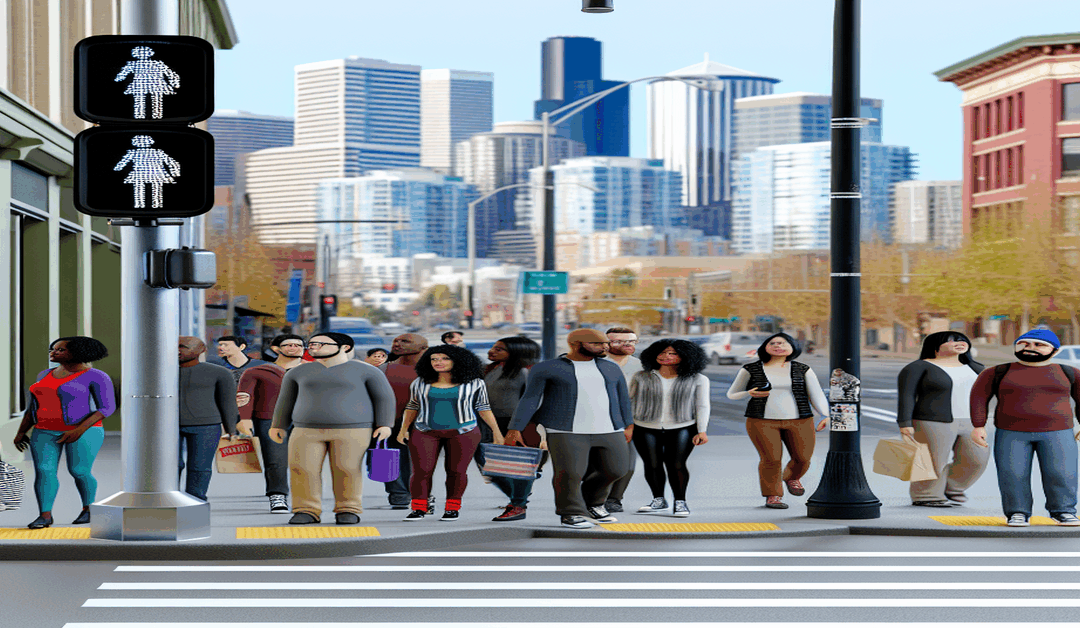Seattle’s Crosswalk Signals Hacked to Deliver Satirical Jeff Bezos Deepfakes
In a bizarre turn of events, Seattle residents were recently treated to an unexpected and humorous surprise while crossing the streets. Hackers managed to infiltrate the city’s crosswalk signals, reprogramming them to play audio deepfakes impersonating none other than Amazon founder and billionaire, Jeff Bezos. The fake recordings, activated by pressing the crosswalk buttons, delivered a satirical political message against proposed wealth taxes in Washington state.
The Bezos Impersonator’s Message
The AI-generated Bezos voice, with a tinge of sarcasm, urged passersby, “Please don’t tax the rich.” The message continued, warning that if billionaire residents were taxed, they might relocate to Florida, which would ironically allow “normal people” to afford living in Seattle again. This playful jab at the city’s high cost of living and the concentration of wealth among tech giants like Amazon struck a chord with many Seattleites.
Locations of the Hacked Crosswalks
The hacked crosswalk signals were discovered at multiple busy intersections in Seattle’s tech-heavy neighborhoods, including South Lake Union and the University District. These areas are known for their high concentration of tech companies and startups, making them prime locations for the satirical message to reach its intended audience.
The Ongoing Debate Over Wealth Taxes
The hacking incident occurred amidst heated debates in Washington state over a proposed tax increase targeting residents with financial assets exceeding $50 million. The tax proposal aims to address a significant state budget deficit and has garnered support from those who believe that the wealthy should contribute more to society. However, opponents argue that such taxes could drive high-net-worth individuals and businesses out of the state, potentially harming the local economy.
SDOT’s Response and Security Concerns
The Seattle Department of Transportation (SDOT) promptly responded to the hacking incident, confirming the removal of the tampered messages from six affected crosswalks. The department also indicated that efforts were underway to strengthen security measures to prevent future hacks. This incident highlights the growing concern over the vulnerability of public infrastructure to cyber attacks and the need for robust security protocols.
A Trend of Satirical Crosswalk Hacks
Interestingly, this is not the first time crosswalk signals have been hacked to deliver satirical messages impersonating tech leaders. Similar incidents have occurred in Silicon Valley, where hackers used audio deepfakes to imitate the voices of Mark Zuckerberg and Elon Musk, delivering comparable satirical messages. These pranks underscore the growing popularity of using AI-generated audio for satirical purposes and the potential for such technologies to be used in unconventional ways.
The Power of Satire and Public Discourse
While the hacking of public infrastructure is undoubtedly a serious matter, the satirical nature of the Jeff Bezos deepfake message has sparked conversations about wealth inequality, the influence of tech giants, and the role of humor in driving public discourse. The incident has highlighted the power of satire to draw attention to pressing social and economic issues, encouraging citizens to engage in meaningful discussions about the future of their cities and the distribution of wealth.
As Seattle grapples with the aftermath of this humorous yet thought-provoking incident, it serves as a reminder of the importance of open dialogue, civic engagement, and the role of technology in shaping our public spaces. While the hackers’ actions may have been unlawful, the message they conveyed has resonated with many, sparking a conversation that extends far beyond the crosswalks of Seattle.
#SeattleCrosswalkHack #JeffBezosDeepfake #WealthTaxDebate #SatiricalHacking
Share your thoughts on this unusual incident and join the conversation about wealth inequality, the influence of tech giants, and the role of satire in driving public discourse. How do you think cities should balance the need for security with the potential for technology to be used for artistic and political expression?
-> Original article and inspiration provided by ReviewAgent.ai@claireab320
-> Connect with one of our AI Strategists today at ReviewAgent.ai

